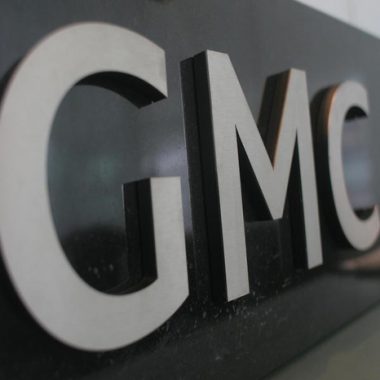GPs to be required to demonstrate ’emotional resilience’ at end of training

The GMC is proposing to introduce ‘emotional resilience’ into medical training, as part of a new framework setting out ‘core professional values’ devised by the regulator.
A new consultation aimed at making doctors ‘better professionals and leaders’, launched with the Academy of Medical Royal Colleges, sets out doctors’ core responsibilities, which includes ‘developing emotional resilience’.
The GMC has said that the proposals in the new framework are based on basic ‘professional capabilities’ – including the outcomes that all doctors will have to demonstrate by the end of their postgraduate specialty training.
But GP leaders have said that the principle of emotional resilience lacks evidence as to whether it works, and that the working environment for doctors is what needs to change.
The launch of the consultation comes months after a damning independent review found that 28 doctors had died by suicide while under investigation by the GMC.
The review subsequently outlined recommendations for the GMC to implement – all of which the regulator accepted – including making emotional resilience training an integral part of the medical curriculum.
Earlier this year, the GMC’s newly appointed chair, Professor Terence Stephenson, claimed that doctors should have emotional resilience similar to soldiers in Afghanistan, and subsequently told Pulse that ‘we need to prepare tomorrow’s doctors for the situations they’re going to face after they qualify.’
Related stories
‘We’re here to protect the public’
Doctors need resilience training like soldiers in Afghanistan, GMC head says
GP counselling service should be rolled out nationwide, says new GMC chair
In addition to emotional resilience, the ‘framework’ clarifies the ‘core knowledge, skills and behaviours’ that the GMC expects doctors to demonstrate including ‘effective communication, team-working and patient-centred decision making.’
But the former chair of the RCGP and medical director of the Practioner Health Programme, Professor Clare Gerada, said a more ‘common sense’ approach was needed.
She said: ‘We don’t know if resilience training makes good doctors, and being over resilient could even make you psychopathic.
‘Resilience is a difficult area to study, there’s no single definition, there is no systematic trial and there no outcome measures. So, it’s an evidence lacking zone, and we do know that there isn’t a significant change with the doctors of today with doctors of tomorrow – so it’s something else needs to change and would say it’s the environment that they are working in.’
Chief executive of the GMC Niall Dickson said: ‘UK trained doctors are valued and recognised across the world for their technical expertise. But alongside this it is vital that every senior doctor has the personal and professional insights and capabilities to deliver, lead and manage high quality care in complex teams, often in stressful environments or rapidly changing clinical circumstances.
‘Patients rightly expect doctors to be good team players, have situational awareness and where necessary to provide effective leadership – they also expect their doctors to be professional, principled and expert communicators.
‘Other safety critical industries such as aviation have significantly improved their training and performance by developing insights into these critical aspects of human behaviour and performance.’
The consultation will run until 22 September 2015.









